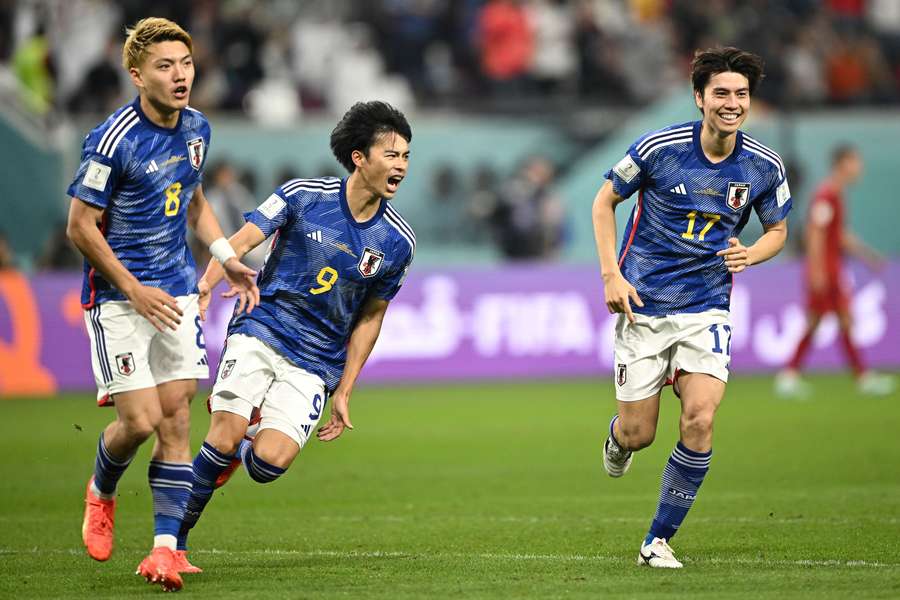Mature counter-attacking tactics help Japan grow up at World Cup

The Blue Samurai will face Croatia in the first knock-out round on Monday after topping Group E with two stunning comeback wins over the European heavyweights.
Japan looked dead and buried when they fell behind in both games but coach Hajime Moriyasu helped turn the tide with his substitutions and tactical changes.
Captain Maya Yoshida credited Moriyasu's counter-attacking game plan for their success and hit back at perceptions that Japan lack the nous to compete on the world stage.
"You're surprised, right?" he asked reporters after the game.
"We're not surprised. You're surprised."
Japan were eliminated in the last 16 four years ago in Russia after throwing away a two-goal lead to lose 3-2 to Belgium.
Playmaker Keisuke Honda was castigated for lofting a last-minute corner into the box with the game poised at 2-2, after Belgium won the ball and raced up the other end to score.
Japan's history of late heartbreak runs deeper than that, having been denied a World Cup debut in 1994 by a last-minute Iraq goal in their final qualifier in the Qatari capital Doha.
The match has become known in Japan as the "Tragedy of Doha" but Moriyasu said the win over Spain proved that those days are long gone.
"About a minute before the end of the game, I thought about the 'Tragedy of Doha'," said Moriyasu, whose team would have been eliminated had Spain equalised.
"But at exactly that moment, the players went for the ball with aggression and I could feel that times have changed.
"The players are playing a new age of football now."
Calm presence
Moriyasu said his plan was to try to hold Spain goal-less until half-time and then bring on speedy, direct forwards to hit them on the counter-attack.
Spain dropped a fly in the ointment when Alvaro Morata gave them an early lead but Japan refused to panic and reached the interval only a goal behind.
Moriyasu brought on Ritsu Doan and Kaoru Mitoma at half-time and the pair caused havoc in the Spanish defence, combining to put Japan ahead within minutes of the restart.
Yoshida said the attacking options at Moriyasu's disposal mean Japan can never be counted out.
"In the second half, both teams were taking more risks and it makes space in behind," he said.
"Even for good centre-backs, if fast players attack huge spaces it's always difficult. That was our plan and we had to defend well because their possession was really good."
Japan's wins over Germany and Spain were in stark contrast to their 1-0 defeat to Costa Rica, where they struggled to break down defence-minded opponents who handed them the initiative.
Moriyasu was criticised for being too cautious against a Costa Rica side that had lost 7-0 to Spain in their previous game, but the coach insisted he would not change his approach.
Moriyasu has stressed the need for his players to keep a level head in Qatar, urging them not to "ride the roller-coaster" of emotions.
Defender Yuto Nagatomo said the coach's demeanour transmits calm to the players.
"Even if Spain had a lot of possession, we had to make sure we didn't get negative or nervous," he said.
"Moriyasu told us we would definitely get chances on the counter-attack and we believed him.
"The manager didn't waver. And if the manager doesn't waver, the players don't either."

